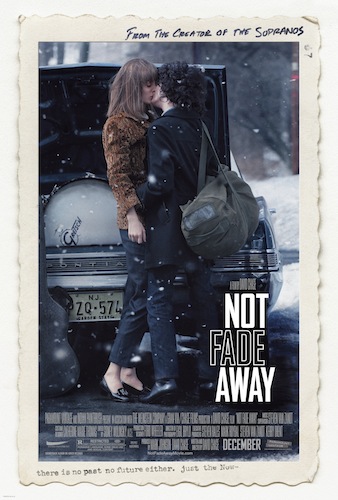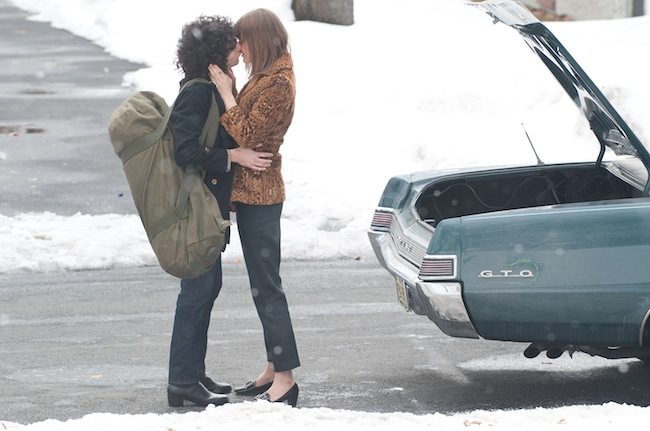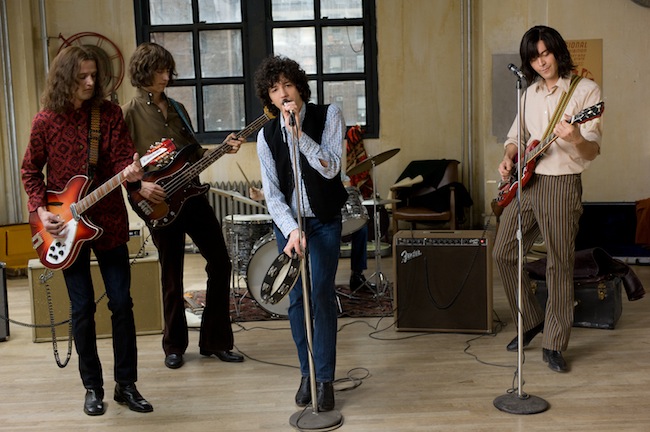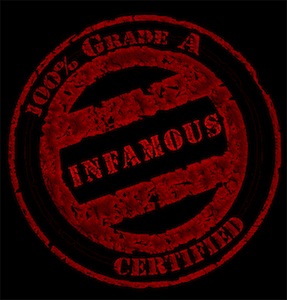
David Chase’s directorial debut NOT FADE AWAY suffers from a lack of one of the things he was able to use to his advantage during THE SOPRANOS – time. During the show’s run of six seasons on HBO, Chase had an hour at a time to slowly progress through multiple character arcs over the course of a season, drawing you further and further into this world of crime he created for the airwaves. With a film, it’s a different ballgame, and putting so many balls in the air, so to speak, aiming to try resolving each of them in under two hours is a tall task, and one that in NOT FADE AWAY doesn’t end successfully. While it’s easy to credit Chase with some interesting ideas told as a coming-of-age story against the backdrop of rock and roll’s evolution and certainly a few characters, there’s just too much going on within the same movie, making these various story threads, all centered around John Magaro’s Douglas, disjointed and disconnected. At different periods, I found myself questioning whether or not Chase had an actual point to his film, or if it was simply an exercise in depicting a stream of consciousness to one’s entire existence. What NOT FADE AWAY does have going for itself is a cast of interesting characters that continue to intrigue at every turn, as you wonder what Chase has in mind for their futures, so, in the moment, you can tolerate and forgive the overtelling of what should be a fairly simple story of rock music influencing and shaping its fans through adolescence into adulthood at a time when music was far less commercial than it is now and served more as a voice for an entire generation.
Douglas is nothing more than a wallflower in his high school days. If he weren’t one of your closest friends, you’d hardly notice him as anything more than that kid in you chemistry class. To his family, he’s the good kid who does what he’s told, perhaps following his father’s wishes for him to sign up for the military one day, with plans to join ROTC in college. There’s nothing about him that would be rock the boat of what might be considered the societal norm at the time as a fairly conservative personality. And then rock and roll happened to him – the Beatles, the Rolling Stones, etc. – and everything changed rather suddenly with Douglas returning for Thanksgiving during his freshman year with long locks, Cuban heels and some rather vocal opinions about the United States’ military force. It’s as if the music suddenly caused an awakening within, allowing him to think for himself and question the establishment… and his future would then be defined by this sudden shift from doing what he was told and being trapped in this shell of what he thought a person should be to someone all too happy to become someone far more unique in his own right.

What helps drive that individualism is a chance encounter with a local friend, much like one that occurred between Mick Jagger and Keith Richards in the creation of the Stones, only this local band would go onto much lower heights in the grand scheme of music history. That meeting led to Douglas becoming a drummer for a local band that covered the songs of some of their favorites, with a heavy leaning towards the Stones, which allowed Douglas being seen in a much different light than ever before. After all, people in a band are cool, with their on-stage personas allowing them to be whomever they want to be, seen however they want others to see them. The uncool can quickly become cool, with their music being the dialogue they share with those who now view them through a new prism.
NOT FADE AWAY shows us how Douglas’ ideas of having this band become his life affects his relationships with others, namely his new love interest (Bella Heathcote) and his fellow band members (Jack Huston and Will Brill) who want different things from their musical endeavors to come – one being happy remaining a local icon with the other wanted artistic credibility with no commercial success whatsoever. What Chase manages to do remarkably well is disguise this coming-of-age story as a simple by-product of the blues, in a similar way that rock and roll was influenced by the genre. Douglas is living the blues, something he couldn’t imagine, because during the time, it was associated with only African-Americans, who adopted it and really dominated it musically. There just weren’t many white blues musicians then. But Douglas has to battle through jealousy and tension in the band? Those are the blues. Douglas learns information about his girlfriend’s history and has trouble reconciling it? Blues. Douglas has trouble with his father’s expectations for him? More blues.

For Chase, the blues comes in many forms, which overwhelms the film at times, by piling on with conflict without ever really dealing with what’s on the table (for example, a whole examination of Heathcote's family dynamic that seems out of place). These problems are never dealt with; they’re just multiplied. So two issues becomes four becomes nine and so on and so forth, which doesn’t serve the story or the characters well, as the fluidity doesn’t lend itself very well to telling a story, simply moving from one scenario to another without any hope, after awhile, for resolution.
There’s no question that Chase is an incredible storyteller, but, if his future remains in feature films, he’s going to have to adapt his creative process a bit to fit the format. Gone are the days when he might have 13 hours to really get into the meat and potatoes of multiple character arcs. NOT FADE AWAY would have worked a lot better as a miniseries or a full series of its own where it was given ample time to see the progression of rock and roll juxtaposed with its lead character. However, as a feature film, there’s just too much going on to make it work.
-Billy Donnelly
"The Infamous Billy The Kidd"
Follow me on Twitter.

